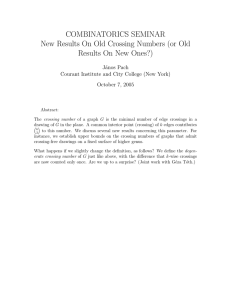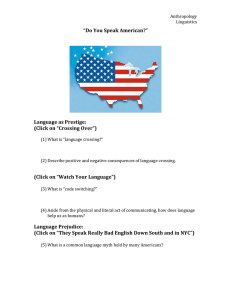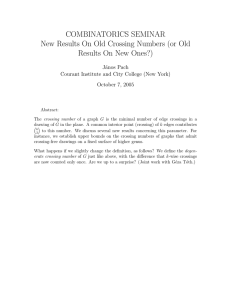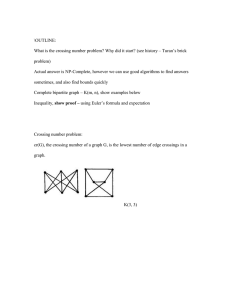View Bill's PowerPoint presentation
advertisement
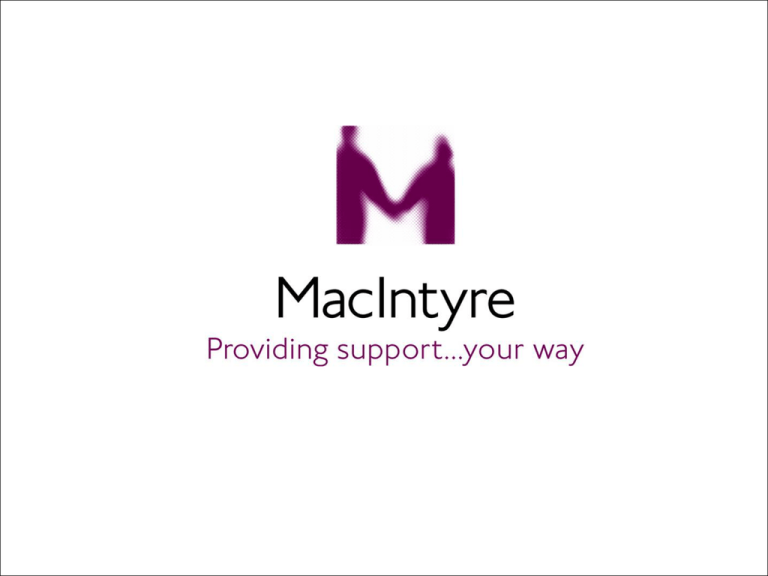
Social History of Learning Disability Open University July 2014 Crossing Boundaries and Building Trust Professionals’ solution to every problem is to say “we need more of us”! So if there are less of us what are we to do!? Crossing boundaries and building trust – a relationship based solution to improving quality in austere times. Crossing Boundaries and Building Trust Urgent Challenges: • Public spending cuts • An ageing society • Increasing numbers of those with long-term health conditions • Rising public expectations for personalised high quality services Crossing Boundaries and Building Trust Institute of Public Policy Research: “We need a radical reconfiguration of our public services to make them better able to tackle the complex challenges…that are consuming a growing proportion of public expenditure. In the past, public service reform has relied too heavily on bureaucratic and market-based tools that are ill-equipped to deal with these problems.” Crossing Boundaries and Building Trust Institute of Public Policy Research cont… “By managing public services as interconnected and decentralised systems, promoting deep relationships and neighbourhood-based approaches in key services, and designing institutions that enable citizens to tackle shared problems together, we can make those services fit for the more complex times that we live in” Many to many: How the relational state will transform public services. IPPR Crossing Boundaries and Building Trust Solutions include: • Greater pooling of funding, so that services can take a ‘whole person’ or ‘whole area’ view • Enabling greater integration of professionals into multi-disciplinary teams • Greater frontline autonomy combined with accountability for outcomes achieved • Expending new collaborative infrastructures to share knowledge and learn from innovation • Deep relationships instead of shallow Crossing Boundaries and Building Trust “The conventional delivery model does not address underlying problems that lead many to rely on public services and thus carries the seeds of its own demise” Right Here Right Now. Nesta Crossing Boundaries and Building Trust • To disempower people who are supposed to benefit from services • To create waste by failing to recognise service users’ own strengths and assets • To engender a culture of dependency that stimulates demand Crossing Boundaries and Building Trust Solutions: • Recognising people as assets • Building on people’s existing capabilities • Promoting mutuality and reciprocity • Developing peer support networks • Breaking down barriers between professionals and recipients • Facilitating rather than delivering Crossing Boundaries and Building Trust Workforce Skills: Co-production practitioners require a particular mix of skills: • Being able to see and harness the assets that people have • To make room for people to develop for themselves • To use a wide variety of methods for working with people rather than processing them • A shift away from a culture of ‘caring for’ to a culture of enabling and facilitating And for senior leaders the skill-set must also be able to change systems and operate on a large scale Crossing Boundaries and Building Trust The leadership challenge: • Organisational culture • People experience our behaviours not our values • Recruiting the right people • Investing in people • Taking risks • Sharing success Bill Mumford Managing Director Tel: 01908 230100 Email: bill.mumford@macintyrecharity.org Fb: www.facebook.com/MacIntyreCharity1 www.macintyrecharity.org
